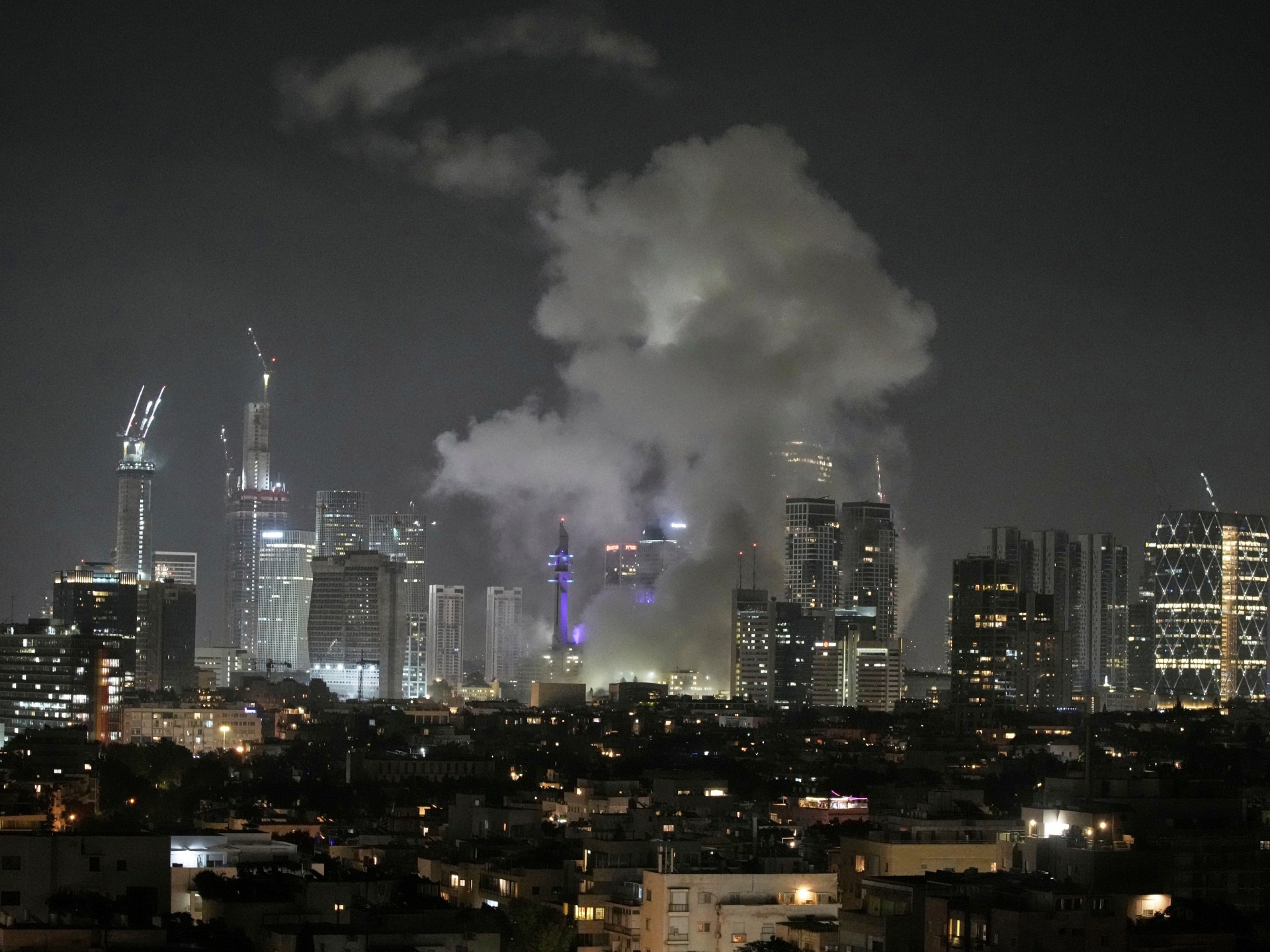Iran says it has launched waves of ballistic missiles towards Israel in retaliation for a major attack on Tehran’s nuclear and military sites.
Explosions were heard over Tel Aviv and Jerusalem as sirens sounded across Israel on Friday night. This follows an unprecedented attack by Israel in the early hours of Friday, which targeted Iranian nuclear sites, senior military commanders and scientists.
Iran’s Supreme Leader Ali Khamenei said Israel’s strikes had “initiated a war” and it would not be allowed to do “hit and run” attacks without consequences.
“The Zionist regime [Israel] will not remain unscathed from the consequences of its crime. The Iranian nation must be guaranteed that our response will not be half-measured,” Khamenei said in a statement.
Iran’s Islamic Revolutionary Guard Corps (IRGC) said Iran “carried out its crushing and precise response against dozens of targets, military centres and airbases” in Israel at the command of Supreme Leader Khamenei.
Three separate waves of attacks and hundreds of missiles were launched at Israel on Friday night, Iranian state news agency IRNA said.
At least one projectile impacted central Tel Aviv, said Al Jazeera’s Nour Odeh, reporting from Amman, Jordan.
However, the Israeli military said Iran fired fewer than 100 missiles, most of which were either intercepted or fell short.
According to the Reuters news agency, citing two unnamed officials, the United States military also helped Israel shoot down Iranian missiles heading towards the country.
Still, during the barrage, a modern apartment block was hit in central Tel Aviv, and according to live footage from the scene, fires raged inside some of the apartments, with smoke billowing from the building.
Another residential building, next to the apartment block, also appeared to have suffered significant damage, with windows blown and pieces of twisted metal hanging from its exterior.
At least 21 people were injured in the missile attacks, the Israeli ambulance service said, adding that two seriously wounded people were trapped in a building in the greater Tel Aviv area.
The Israeli army told citizens that they were now allowed to leave “protected spaces” after an earlier announcement called on residents to avoid public spaces amid a potential Iranian attack.
‘The gates of hell will open’
Israel’s attacks on Iran on Friday killed several top Iranian generals and scientists, including the armed forces chief of staff, Major-General Mohammed Bagheri, and the IRGC chief, Hossein Salami. However, Major-General Mohammed Pakpour was swiftly promoted to replace Salami.
Iran’s ambassador to the United Nations, Amir Saeid Iravani, told the UN Security Council that 78 people were killed and more than 320 others injured in Israel’s Friday attacks, including women and children.
In a letter to Khamenei read out on state television, Pakpour promised that “the gates of hell will open to the child-killing regime”, referring to Israel.
During Israel’s surprise attack, its military said it had struck more than 200 targets across Iran.
Before Iran’s retaliatory strikes, Israeli military spokesperson Brigadier-General Effie Defrin told journalists that Israel’s army was “continuing to strike”.
“Iran has the ability to significantly harm the Israeli home front”, Defrin told a televised news conference that was cut short due to what the army said was an incoming attack.
Defrin added that the army had targeted the nuclear facility in Iran’s Isfahan and that the operation was “still ongoing”.
Iran’s atomic energy agency said there was limited damage to the Isfahan nuclear site and the Fordo nuclear site south of Tehran, which was also targeted.
“The damage was limited to areas that did not cause any urban damage in the case of Fordo … In Isfahan, there were also attacks on several points, which were related to warehouses that caught fire,” said agency spokesperson Behrouz Kamalvandi.
He added that “the damage was not extensive and there is no cause for concern in terms of contamination”.
Earlier, Israel also attacked the Natanz nuclear enrichment site in Iran. The head of the International Atomic Energy Agency (IAEA), Rafael Grossi, said that the attack may have damaged centrifuges and there was radiological and chemical contamination inside the facility, but the contamination was manageable with “appropriate measures”.
In a statement earlier on Friday, Israeli Prime Minister Benjamin Netanyahu said he expected “several waves of Iranian attacks” in response to Israel’s actions.
Later, during Iran’s attack on Friday night, Netanyahu said in a statement directed at Iranian citizens that Israel’s operation was to “thwart the Islamic regime’s nuclear and ballistic missile threat”.
Source: Aljazeera

Leave a Reply